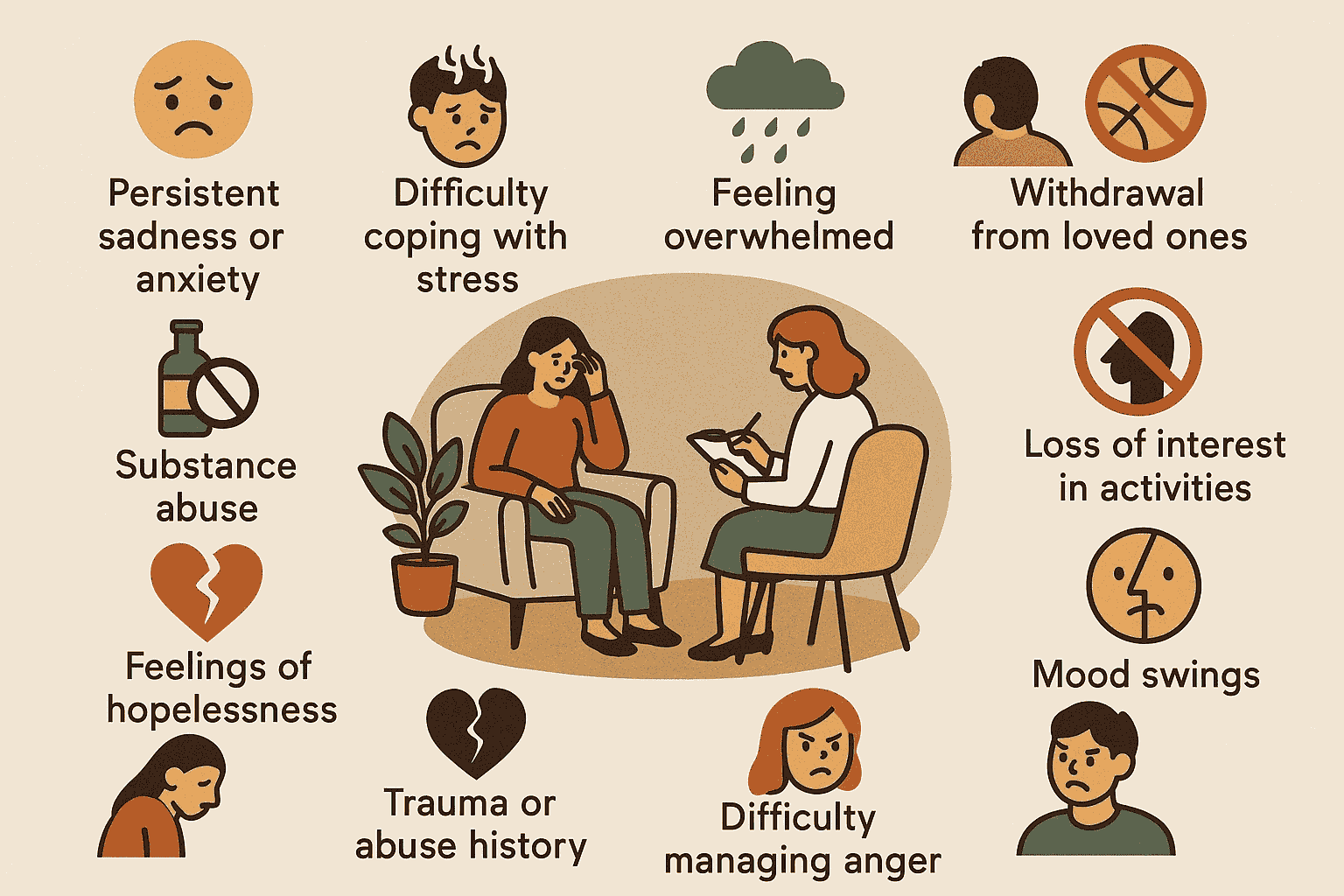Comprehending the Significance of Mental Treatment for Teen Growth and Wellness
Mental treatment plays a critical duty in the growth and wellness of teens. It deals with an array of mental health issues that can impede their development. With therapy, teens can find out essential coping approaches and boost their emotional knowledge. This procedure fosters strength, enabling them to better navigate life's difficulties. However, several still be reluctant to participate in conversations about mental health. Discovering the reasons behind this hesitation exposes much deeper insights right into the adolescent experience.
The Impact of Teenager Mental Health on Overall Growth
The interaction in between teen mental wellness and general advancement is complex and profound. Throughout the essential phase of teenage years, individuals go through considerable physical, psychological, and social changes that shape their identification and future. Mental wellness plays a critical function in this procedure, influencing scholastic performance, connections, and self-worth. Positive psychological wellness fosters durability and flexibility, making it possible for teens to navigate difficulties properly. Alternatively, mental health and wellness concerns can harm cognitive functions, interrupt social communications, and prevent emotional policy, leading to a cascade of developmental obstacles.
The setting in which teenagers expand-- incorporating household characteristics, peer impacts, and social assumptions-- engages with their mental well-being, further complicating their developmental trajectory. Recognizing the relevance of mental health in this phase is important for promoting healthy advancement and guaranteeing that adolescents can thrive, both during their formative years and beyond. Focusing on psychological health support can significantly enhance their overall growth and future capacity.
Common Mental Health Issues Encountered by Teenagers
While navigating via the intricacies of adolescence, several young adults come across a variety of mental health concerns that can considerably affect their lives. Anxiety problems are common, often defined by excessive concern or fear that conflicts with daily activities. Clinical depression is one more usual issue, manifesting as relentless unhappiness, loss of passion, and problem in functioning. In addition, behavioral troubles, such as oppositional bold condition, can bring about disputes with authority numbers and a struggle to follow social norms. Eating problems, consisting of anorexia and bulimia, may arise as teens grapple with body photo and societal pressures. Compound misuse can develop as a misdirected effort to cope with emotional distress. These psychological wellness obstacles, if unaddressed, can impede scholastic performance and interpersonal connections, emphasizing the demand for understanding and support within this prone age.
The Duty of Treatment in Building Coping Methods
Treatment plays a considerable duty in outfitting teenagers with effective coping techniques to browse their psychological health difficulties. With structured sessions, specialists help adolescents determine and comprehend their emotions, promoting self-awareness. By making use of numerous strategies such as cognitive-behavioral treatment, teenagers learn to challenge negative thought patterns and change them with constructive ones. This process enables them to create healthier responses to stressors.
Additionally, therapy gives a secure setting for teens to exercise these techniques, helping with the shift from theory to real-life application. Role-playing and Individual Therapy For Teens circumstance evaluation enable them to rehearse coping mechanisms in a supportive room. As teens deal with special stress-- academic needs, social dynamics, and identity expedition-- having personalized dealing techniques becomes necessary. Eventually, treatment not only addresses immediate concerns however also imparts long-lasting abilities that allow adolescents to take care of future difficulties, promoting general psychological health and resilience in their development.
Fostering Strength and Emotional Knowledge Through Treatment
Exactly how can treatment nurture strength and emotional intelligence in teens? Treatment supplies a risk-free atmosphere where teens can explore their emotions, habits, and ideas. With guided tasks and discussions, specialists aid teenagers determine and recognize their feelings, promoting psychological recognition. This awareness is a foundation of psychological intelligence, enabling them to empathize with others and handle social relationships successfully.
In addition, therapy furnishes teens with devices to navigate life's challenges, promoting durability. By dealing with past traumas, frustrations, and stress factors, they find out to develop coping systems that equip them to deal with misfortune. Therapists commonly motivate goal-setting, which imparts a feeling of function and achievement.
As teenagers practice these abilities in treatment, they come to be more adept at handling problems and uncertainties (Individual Teen Counselling). Eventually, this nurturing of strength and psychological knowledge prepares them for the complexities of adult life, enhancing their general mental health and well-being

Motivating Open Dialogue Regarding Mental Wellness in Teenagers
What strategies can effectively cultivate open discussion regarding psychological wellness among teenagers? Creating a supportive and secure atmosphere is essential. Parents and educators must motivate discussions by normalizing discussions regarding mental health, highlighting that it is a considerable aspect of total wellness. Energetic listening plays an important duty; grownups must be non-judgmental and conscientious when teens share their sensations or worries.
Integrating mental wellness education into institution curriculums can additionally promote open dialogue. Workshops, peer support system, and mental wellness understanding projects can encourage teens to share themselves a lot more easily. In addition, using social media platforms can be helpful, as they are usually where teens really feel most comfortable interacting. By fostering an atmosphere of depend on and visibility, adults can assist teens recognize that talking about psychological wellness is not only appropriate but needed for their growth and emotional wellness.
Regularly Asked Inquiries
Exactly How Can Moms And Dads Recognize Indications of Mental Health And Wellness Issues in Teenagers?
Moms and dads can recognize indicators of psychological health problems in young adults by observing changes in behavior, state of mind swings, withdrawal from activities, declining scholastic efficiency, adjustments in rest or hunger, and expressing feelings of despondence or anxiousness.
What Types of Treatment Are The Majority Of Effective for Teenagers?
Cognitive Behavior Modification (CBT), Dialectical Behavior Modification (DBT), and team therapy are among the most effective types for teens. Individual Teen Counselling. These approaches foster coping skills, psychological policy, and offer peer support, necessary for teen psychological health and wellness
Just How Can Treatment Assistance Academic Efficiency in Teenagers?

What Should Teenagers Expect During Their Initial Therapy Session?
Throughout their initial treatment session, teenagers can anticipate an inviting atmosphere, an introduction to the therapist, conversations concerning their worries, and establishing goals (Individual Therapy For Teens). Privacy and the restorative process will additionally be clarified to cultivate convenience and count on
How Can Young Adults Discover a Specialist That Matches Their Requirements?
Teens can find an ideal therapist by seeking referrals from relied on adults, looking into on the internet directories, taking into consideration specializeds, and scheduling first appointments to assess compatibility and communication designs, ultimately making certain a helpful healing partnership.
